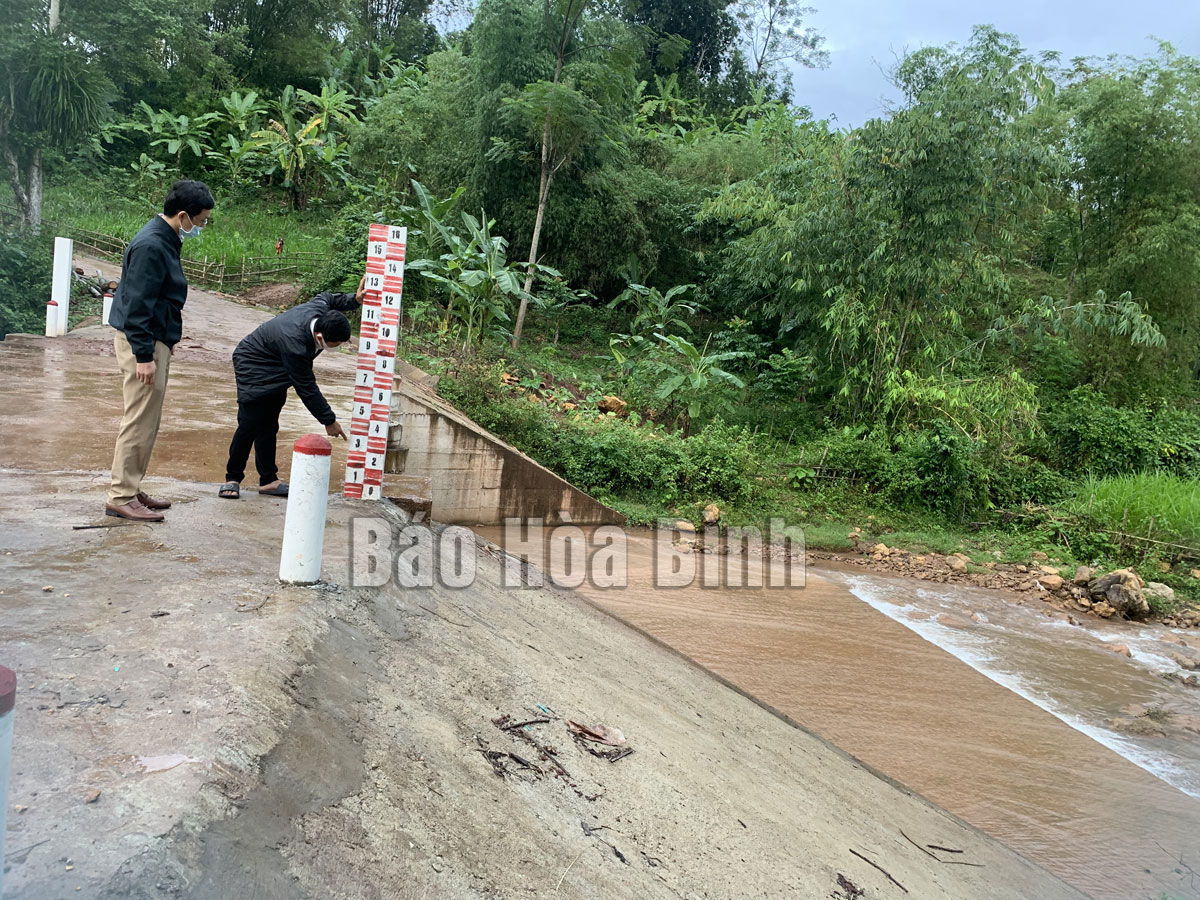(HBO) – Over the years, the Party Committee and government of Mai Chau district have made full use of investment resources and implemented comprehensive measures to boost the economic development in disadvantaged areas, thus improving the living conditions of people from ethnic minority groups.
La Phuong spillway in Xo hamlet, Na Phon commune of Mai Chau district
has been built with an aim to create favourable conditions for people’s
travelling and goods transport activities.
Mai Chau has 10 ethnic minority-inhabited communes and seven hamlets classified
as areas in extreme difficulties, with 88.04 percent of their population from
ethnic minority groups. As a mountainous locality that is home to many ethnic
groups, the district has paid great attention to the implementation of ethnic
policies and development of the living conditions of people in those areas.
The district has supported local residents in promoting production, while
investing in developing the infrastructure system and striving to well
implement ethnic policies. The efforts have brought about fruitful results,
improving the living conditions of locals and changing the face of rural areas,
contributing to boosting socio-economic development in the locality. In areas
covered by the policies, the ratio of households living under and just above
the poverty line has reduced over 3 percent per year.
Meanwhile, the district has optimised resources from programmes and projects to
support ethnic minority people in production and expand socio-economic
infrastructure. In the 2019-2020 period, the total investment in socio-economic
development programmes in communes and hamlets facing extreme difficulties and
ethnic minority-inhabited areas in the district reached nearly 25 billion VND
(1.08 million USD).
The resources were used to build 41 public works, including schools, roads,
irrigation works, community houses, as well as the upgrading of existing
facilities.
Many other policies for the areas have also been implemented, including
assistance in housing and farming land as well as water supply for poor and
ethnic minority households in communes and hamlets facing extreme difficulties.
The public works have served production and livelihoods of people in remote and
poor villages and hamlets, contributing to changing the face of rural areas,
creating favourable conditions for travelling and production activities,
improving people’s access to social services, contributing to speeding up
poverty reduction and sustainable socio-economic development as well as
ensuring security and defence of the locality.
In 2021, the district has focused on completing construction projects left from
the previous year and reviewing the situation in ethnic minority-inhabited
areas so as to design plans for 2022 as well as the 2021-2025 period.
Ha Nguyen Thanh Quang, deputy head of the district office for ethnic affairs
said that in the time to come, the district will concentrate on evaluating the
socio-economic situations of mountainous and ethnic minority-inhabited areas,
while implementing ethnic minority-related programmes and policies, and
realising the dual targets of controlling the pandemic and boosting
socio-economic development at the same time, including the improvement of
living conditions of people from ethnic minority groups.



